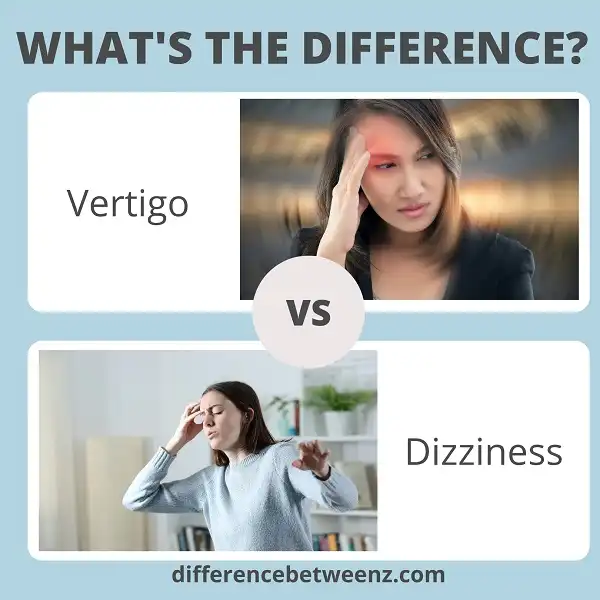Dizziness and vertigo are two similar yet different sensations that can make you feel unsteady. Many people use the terms interchangeably, but they are actually quite different. Dizziness is a feeling of lightheadedness or being off-balance, while vertigo is a sense that you or your surroundings are spinning. Knowing the difference between the two can help you get the right treatment if you experience either sensation.
What is Vertigo?
Vertigo is a condition that causes a person to feel as if they are moving when they are not. It can be caused by a problem with the inner ear, brain, or spinal cord. People with vertigo may feel as if they are spinning, swaying, or tilting. They may also have trouble balancing and walking.
Vertigo can be caused by a number of different problems, including inner ear infections, head injuries, and migraines. Treatment for vertigo depends on the underlying cause. In some cases, it may go away on its own. However, vertigo can also be a chronic condition that requires long-term treatment.
What is Dizziness?
- Dizziness is a feeling of lightheadedness, unsteadiness, or falling. It can be a symptom of low blood sugar or dehydration. It can also be caused by areas of the inner ear that are not working properly. Dizziness is not the same as vertigo, which is a feeling that you are spinning or that your surroundings are spinning around you. Dizziness can make it hard to balance, and you may fall. You should see your health care provider if you have sudden, severe dizziness or if it does not go away.
- There are many possible causes of dizziness, so your provider will want to ask about your medical history and do a physical exam. Sometimes tests are needed to find the cause of your dizziness. Treatment will depend on the cause. Sometimes no treatment is needed.
- For example, some people feel dizzy when they stand up too fast after sitting or lying down for a long time. This usually goes away quickly and does not need treatment. People with diabetes may feel dizzy when their blood sugar level is low (hypoglycemia). Taking steps to raise the blood sugar level will usually stop the episode of dizziness.
Difference between Vertigo and Dizziness
Vertigo and dizziness are two terms that are often used interchangeably, but they actually describe two different experiences. Vertigo is a sensation of spinning or rotational motion, even when there is no actual movement. It can be caused by inner ear problems, such as BPPV, or by other conditions, such as migraines. Dizziness, on the other hand, is a general feeling of lightheadedness or imbalance. It can be caused by dehydration, low blood sugar, or medications. While vertigo is a specific type of dizziness, it is also possible to experience both vertigo and dizziness at the same time.
Conclusion
So, what is the difference between vertigo and dizziness? Vertigo is a specific type of dizziness that is caused by problems with the inner ear or the vestibular system. Dizziness, on the other hand, can be caused by many different things, including problems with the eyes, ears, brain, blood pressure, or heart. If you are experiencing symptoms of either vertigo or dizziness, it’s important to see your doctor determine the cause and get appropriate treatment. Thanks for reading!


